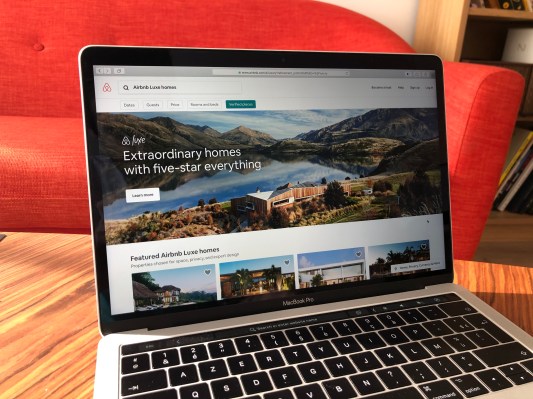A few years ago, Silicon Valley couldn’t stop using a trendy buzzword — the sharing economy. The good old top-down economic model with a clear separation between service providers and clients was falling apart. And huge tech companies disrupted entire industries, from Airbnb to Taskrabbit, Uber, Etsy and Getaround.
When you retrospectively look at the sharing economy boom of the early 2010s, many of the principles that defined that generation of startups have slowly disappeared. Instead of a huge societal shift, the sharing economy is slowly fading away.
What is the sharing economy?
In the past, if you wanted to buy a good or a service, you would ask a company or a professional to provide it.
You’d buy something from a company in particular because you knew it would be the exact thing you need. That’s why plenty of companies spent huge amounts of money to build a brand and a reputation. If you just bought a car, chances are you’ll see thousands of ads for cars before you buy your next car.
And that’s also why distribution channels have been key, especially in commoditized markets with low brand differentiation. For instance, when you buy a new printer, chances are you just head to an electronics store or type “printer” on your favorite e-commerce website. If HP doesn’t have a distribution deal with those stores, you’ll just buy an Epson printer.
If your neighbor wants a new printer in a couple of years, you might recommend the same printer, but you may have forgotten where you bought it. There’s little differentiation between distribution channels in that case.
The marketplace model
The sharing economy happened because a group of entrepreneurs wanted to invent new distribution channels. Sure, some traditional distribution channels secured exclusive rights to sell specific products.
But those startups made a radical change. They wanted to work on a completely new inventory of goods or services.
The marketplace business model slowly thrived. Thanks to the internet, the barrier to entry to list your product or service on an online platform has become much lower. Craigslist and eBay (also Napster, blogs and social networks in some way) taught a generation that you could connect with other people on the internet and agree on a transaction.
The only missing piece was a facilitator that would foster that peer-to-peer model. And that’s how we ended up with Airbnb, Uber and countless of other companies.
That approach was incredibly powerful at first as distribution channels were no longer a means to an end. They were a destination by itself, a gateway to connect to other individuals.
From the sharing economy to the on-demand economy
The sharing economy was a great idea because it was a level playing field. Finally, everybody had the same chance of selling something. The smallest Etsy furniture maker could compete with Ikea. Some person with a car could compete with veteran cab drivers.
Over time, platforms became bigger and market dynamics took over. Deliveroo keeps asking for a bigger cut of the restaurant paycheck. Fiverr keeps accepting more freelancers in order to drive prices down.
Nobody really talks about the sharing economy anymore. People prefer using other phrases, such as the on-demand economy, the gig economy, the convenience economy (or even mommy-as-a-service). People also consider that Lime, Bird and Mobike are part of the on-demand economy even though it’s not a peer-to-peer business model.
Some people became highly dependent on the sharing economy and saw that the sharing economy wasn’t the goldmine they were promised. According to JPMorgan Chase Institute, ride-hailing drivers earned around $1,600 per month in 2014. They now earn around $700 per month.
When it comes to long-term sustainability, the explosive growth rate of the sharing economy has created unpredictable risks. A court in the U.K. has ruled that a group of Uber drivers are workers, not self-employed partners. City officials in Paris say that Airbnb creates some distortions on the housing market.
Predictable growth
Companies have found a way to keep those risk factors under control. They are now entering the traditional industries that they were disrupting in the first place.
Airbnb acquired HotelTonight and even lists a ton of independent hotels on the main Airbnb platform. And if you’ve been traveling with Airbnb for a while, when is the last time you had a nice chat with a host? It is now a normalized and sanitized transaction process that doesn’t involve much sharing.
In 2007, Airbnb’s tagline said: “Forget hotels”. In 2008, the company said: “Book rooms with locals, rather than hotels”. Now, Airbnb uses meaningless taglines, such as “belong anywhere” or “live there”.
BlaBlaCar is a long-distance ride-sharing platform. If you’re driving from one city to another, you can list your empty seats in advance in order to carpool with other people. But the startup recently acquired Ouibus to expand to bus rides.
Another significant example is Drivy, a European peer-to-peer car rental that was recently acquired by Getaround. The company initially started as a sort of Airbnb for cars. Anybody could create an account, list their car on the platform and rent it to other people. It’s a great idea as cars stay parked 96% of the time.
Its founder and CEO Paulin Dementhon told me that it is now mostly working with small rental companies that own a small fleet of cars. It is still a marketplace, but it works with service providers and customers.
Taxis, hotels, cars with empty seats, Ikea and car rental companies are still around. And sharing economy companies are slowly becoming more like traditional companies with a top-down business model.
It turns out that the sharing economy doesn’t work at scale. Growth adds friction as it becomes increasingly harder to control the quality of huge inventories. Early enthusiasts on the supply side of those marketplaces are getting tired of low pays and uncertainty. They’d rather work for traditional companies.
When it comes to values, the sharing economy provided a glimpse of hope after the 2007-2008 financial crisis. Maybe people could talk together, work together, help each other and break down their consumption silos. But that dream is slowly fading away in the dust of Burning Man.

